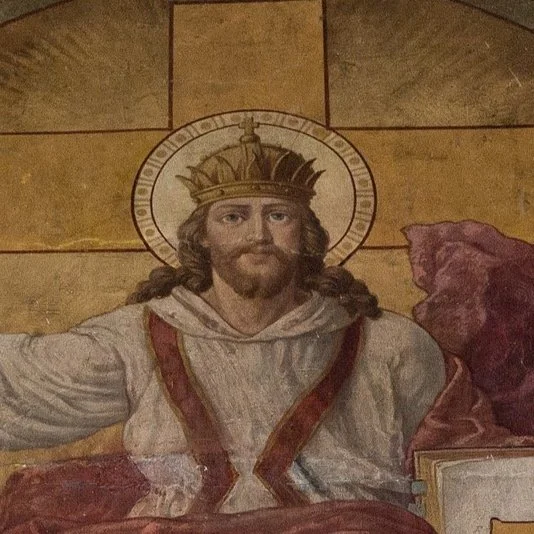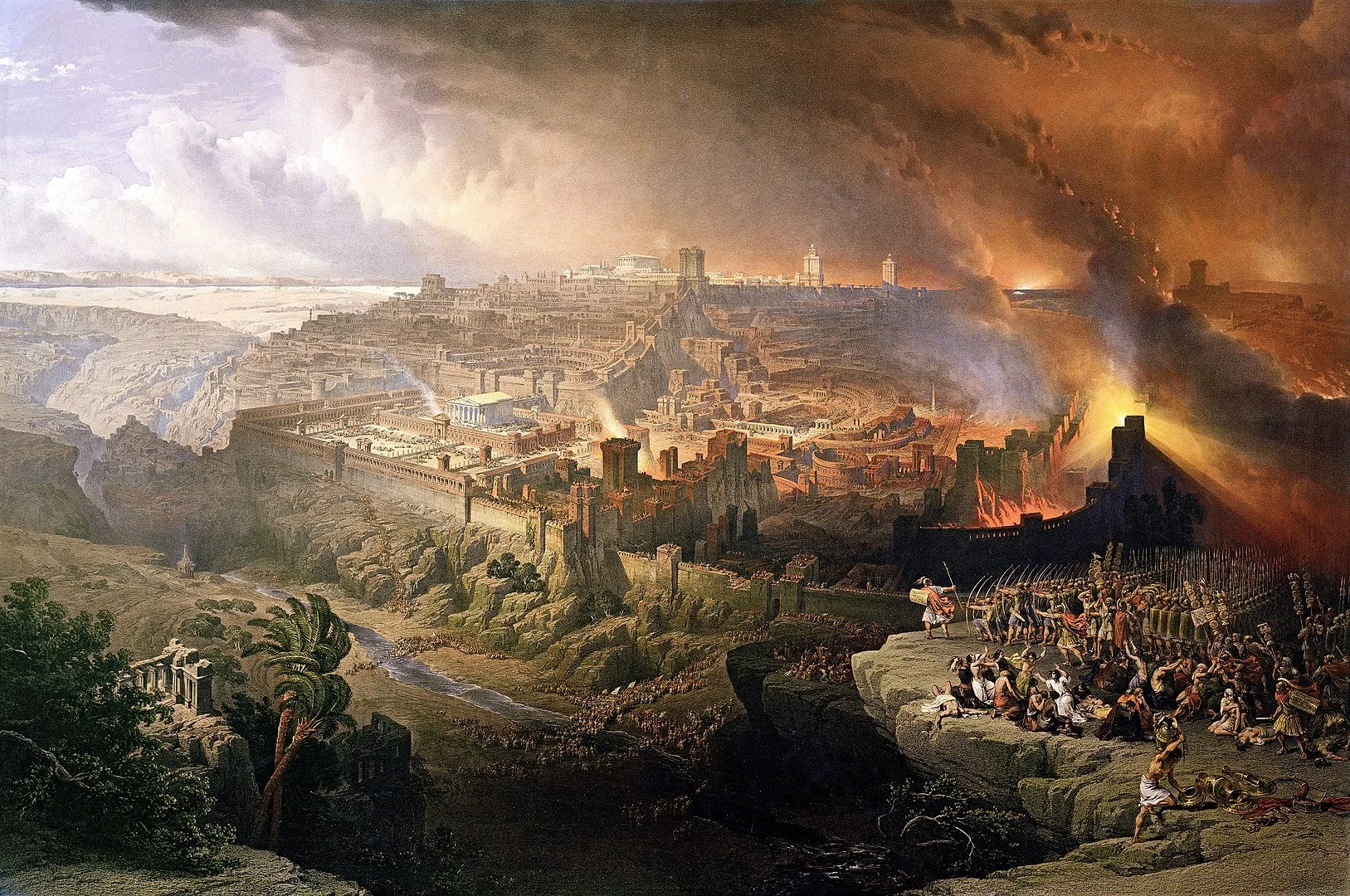Solemnity of Christ the King
/Dominica D.N. Iesu Christi Regis
21 November 2021
In a Church with as much history as ours, we observe today a solemnity that is more recent in history. This solemnity of the universal kingship of Christ was established by Pope Pius XI in 1925. In his encyclical letter about today’s feast, Pope Pius XI sets the context of this observance. Let’s listen to his own words:
“In the first Encyclical Letter which We addressed at the beginning of Our Pontificate to the Bishops of the universal Church, We referred to the chief causes of the difficulties under which mankind was laboring. And We remember saying that these manifold evils in the world were due to the fact that the majority of men had thrust Jesus Christ and his holy law out of their lives; that these had no place either in private affairs or in politics: and we said further, that as long as individuals and states refused to submit to the rule of our Savior, there would be no really hopeful prospect of a lasting peace among nations. Men must look for the peace of Christ in the Kingdom of Christ; and that We promised to do as far as lay in Our power. In the Kingdom of Christ, that is, it seemed to Us that peace could not be more effectually restored nor fixed upon a firmer basis than through the restoration of the Empire of Our Lord” (Quas Primas, Pope Pius XI, December 11, 1925).
Exponentially moreso than did the year 1925, our time bears the marks of a society suffering great difficulties and manifold evils due to Jesus Christ and his law being thrust out of public and private affairs and out of the governance of nations. There is no authentic and lasting peace between nations, and within nations divisions, tribalism, and dissolution is on the rise, bringing with it great turmoil, unrest, and fear. What a vision Pope Pius XI had so many decades before the insane lawlessness that has now gripped our nation and much of the world! This reality should give us renewed focus and vigor to observe the kingship of Christ. This reality should also lead us to unapologetically submit ourselves more completely to the reign of Christ. To stay on the current path of modernity and secularization is to choose a path of destruction.
By virtue of his divine nature, being the Son of God with all lordship and sovereignty, our Blessed Lord is a King by right. Being God, his kingship extends farther than any mere man’s kingship. Yet, having given us the curious gift of freedom, there is a certain sense in which his sovereignty must be claimed over us, as if by conquest. To be clear, the Lord has absolute rights over us. Yet, in freedom, he expects us to use that gift to submit and to willingly subject ourselves to his rule. Our Blessed Lord makes this conquest and claims his rights over us by his Passion, death, and resurrection. Thus, with good reason do we hear the Gospel on this feast, a Gospel that communicates to us the unique way the Lord exercises his kingship. It is a Gospel leading to the Lord’s condemnation and death on the Cross. By shedding his blood on the Cross, the Lord condemns sin and wins victory over Satan and his kingdom of darkness. The implications are grave for our social order and for our hope for salvation when we refuse the kingship of the Lord who is the Way, the Truth, and the Life… when we refuse the incarnate love of God for us. Consider not so much the small portion of the Gospel we hear today, but the whole larger context of the scene surrounding the arrest, the accusation, and the condemnation of Jesus. “The angry mob outside demands him to be punished. Voices from all sides have already concluded that he is guilty, even before any trial begins. They don’t want to hear the facts of the case,” or to accept any meaning of the facts that does not fit the predetermined narrative (Rev. Robert Wood, personal text message, 20 November 2021). “The truth of the matter makes no difference [to them]. He is obnoxious to them, and he has already been condemned in their minds and hearts. It is not a matter of truth or justice, but of factions and ideologies and lies” (ibid). What are the implications of rejecting the order of the King who is the Way, the Truth, and the Life? Look into the mirror and look into that mirror of our civilization that is the mass media, cell phone video footage, and social media posting. “The scene of today’s Gospel continues to be played out in our world. Not only in Kenosha, Wisconsin, or Brunswick, Georgia,… but in every place and community and heart that refuses to see the truth, or to cherish the truth, or to listen to the spoken truth” (ibid). When you reject the Kingship of the Word Incarnate who is Truth, the result is not that you are without a king. Rather, fallen sinful man makes himself, and what satisfies himself – and soon – his delusions and his derangements, a king.
Having established his kingship over us, we should find comfort in knowing it is God’s action that makes it possible for us to enter his kingdom, to subject ourselves to him, and in so doing to find ultimate and lasting freedom. While it is possible for us to submit to our King, it is a work that requires our cooperation and ongoing effort in the life of grace. Seeing the order of the reign of Christ flourish and proliferate in our world begins with that territory, that domain, that is a human person. It begins with you and me submitting ourselves to the Lord, training our children to do the same, witnessing to the Lord and proclaiming the Gospel in our areas of influence so that others come to accept the Lord as their King too. Then we will see the proper flourishing of the Kingship of Christ reflected in greater order, justice, truth, and peace in our world. We get just a little glimpse of that growth and flourishing of the reign of Christ today as our brothers and sisters in RCIA have taken a new step to submit themselves to the Lord and to serve him in his Church as they enter the time of formation and instruction that is the catechumenate.
The placement of this solemnity situates it always near the annual observance of All Saints’ Day. The proximity of this placement can serve as a lesson that the mission of the Lord Jesus as King continues in how the saints manifest the holiness and glory of the Lord. We celebrate the fidelity and the success of the reflected glory and holiness of God shown in the saints, but we also must admit that the Lord’s mission and his reign is supposed to continue in each of us who must strive for holiness and who are saints still-in-the-making.


